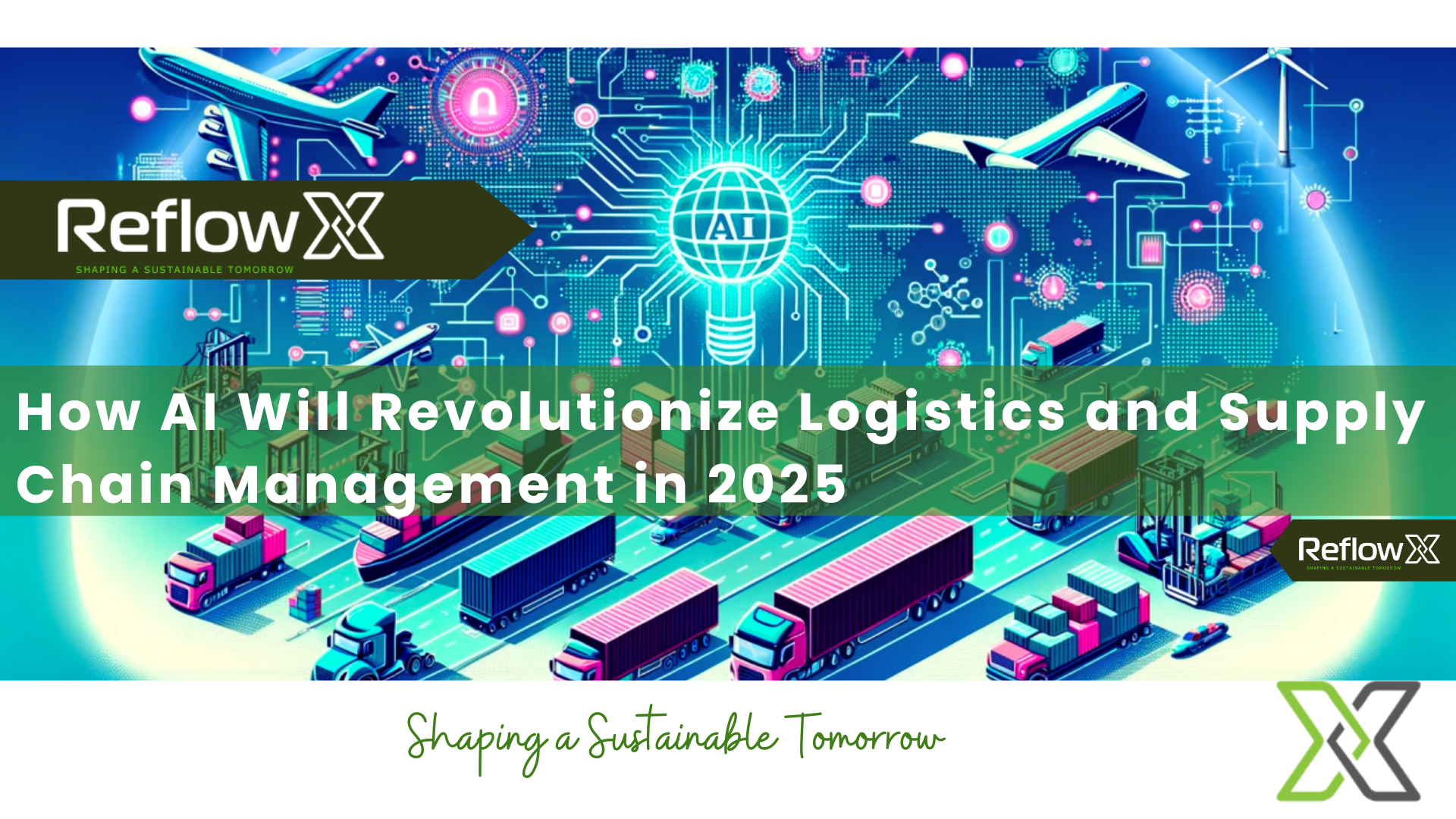
In 2025, the logistics and supply chain industry is undergoing a tectonic shift with the help of AI-driven logistics solutions that are changing the dynamics of goods flow across the globe.
Artificial intelligence in logistics is no longer optional but rather a competitive requirement, as it can help to forecast demand with an impressive degree of accuracy, power autonomous warehouses, and streamline last-mile delivery.
Companies such as Reflowx are leading the charge, making it easier than ever to leverage AI in supply chain management to make companies faster, more resilient, and more sustainable than ever.
Smarter Demand Forecasting and Planning
AI enables businesses to predict customer demand with high accuracy, helping avoid stock-outs and excess inventory while improving supply chain agility.
AI-Driven Forecasting Models
Machine learning in supply chain forecasting is one of the most important innovations in 2025. AI can now look back at past sales, market trends, social media sentiment, and even weather patterns to make demand predictions with an accuracy that is hard to believe.
To give an example, with the help of AI-based systems, retailers can predict peak demand weeks prior to its occurrence and prevent the costly errors of stock-out or overstocking.
Such forecasts enable production plans and shipping plans to be in sync with the demands of the market.
Real-World Impact
The process of inventory management has been streamlined and made more dynamic, as retailers such as Zara and Best Buy are able to make mid-season changes that were not possible a few years back with the help of AI.
Businesses are getting demand-driven supply chains with that kind of technology, and they are finally finding a balance between cost and service effectiveness.
Intelligent Warehousing and Robotics
Autonomous robots and AI-driven systems streamline picking, packing, and inventory management, increasing warehouse speed and reducing errors.
AI and Autonomous Operations
The warehouses have transformed into intelligent fulfillment centers where AI collaborates with robotics.
Autonomous Mobile Robots (AMRs) and Automated Guided Vehicles (AGVs) can travel through the aisles of a warehouse, picking and packing orders more quickly than human crews and with fewer mistakes.
Artificial intelligence in logistics also drives the vision-based systems that detect misplaced inventory and damaged goods and optimize the storage layouts in real time.
Efficiency Meets Reliability
These facilities that are powered by AI are not only available 24 hours a day but also maximize throughput and minimize operations costs.
Businesses that implement AI-driven logistics and supply chain, such as those provided by Reflowx, experience increased order accuracy and are able to scale operations during seasonal peaks without the need to acquire huge temporary workforces.
AI-Powered Route Optimization and Last-Mile Delivery
AI dynamically optimizes delivery routes, cutting fuel costs and ensuring faster, more reliable last-mile fulfillment for customers.
Smart Route Planning
The final mile has been the most uncontrollable and costly part of the logistics. By using AI, businesses will be able to run traffic, fuel prices, vehicle capacity, and delivery windows to dynamically optimize routes.
This saves on fuel and emissions and enhances speed of delivery, which is a key element in the current e-commerce-dominated society.
Transforming Customer Experience
AI is not only cost-efficient, but it also improves the customer experience. Last-mile delivery is easier than ever with precise ETA estimates, preemptive delay notifications, and rerouting. options. In most cases, such as companies using the Reflowx technology, AI-enabled last-mile systems are the most critical aspect of customer loyalty development in competitive markets.
Supply Chain Visibility and Risk Management
AI-powered control towers provide real-time visibility, allowing companies to anticipate disruptions and take proactive measures.
AI-Powered Control Towers
By 2025, the term “AI” in supply chain management will be interchangeable with “visibility” and “resilience.” The new control tower systems consume the information of suppliers, shipping lines, and IoT devices to provide a single, real-time picture of the entire supply chain.
When there are disruptions, like a strike in the port or a shortage of raw materials, AI forecasts the possible effects and suggests mitigation measures, like rerouting the delivery or finding another supplier.
Staying Ahead of Disruptions
Businesses that have these predictive insights do not respond to crises anymore, but they anticipate and adapt. This proactive strategy will avoid loss of revenue, and it will improve supplier relationships.
Digital Twins and Predictive Simulations
Virtual replicas of supply chains enable businesses to test scenarios and plan responses before real-world issues occur.
Building Smarter Supply Networks
One more revolutionary application is the development of digital twins – digital copies of the whole supply networks. Businesses can now model what-if scenarios, such as sudden demand surges or geopolitical shocks, and assess their effects before taking any real-life action.
Such simulations enable improved contingency planning, elimination of bottlenecks, and enhanced long-term strategic decisions.
Driving Sustainability with AI
AI optimizes transport, reduces emissions, and helps companies meet environmental goals while improving operational efficiency.
Greener and Leaner Operations
Sustainability is no longer an afterthought – it’s a performance metric. Machine learning in supply chains helps organizations:
- Optimize low-emission routes.
- Consolidate loads to reduce trips.
- Track carbon emissions per shipment.
By combining operational efficiency with environmental responsibility, companies meet ESG targets without sacrificing profitability. This dual focus on green logistics is a defining trend of 2025.
Conclusion
By 2025, the integration of artificial intelligence in logistics is no longer about incremental improvements – it’s about reimagining the entire supply chain. Businesses that embrace AI see:
- Faster, data-driven decision-making
- Smarter inventory management and routing
- Stronger resilience against disruptions
- Measurable gains in sustainability and efficiency
Companies like Reflowx are leading this revolution, offering AI-powered logistics solutions that transform operations from reactive to predictive and from fragmented to seamlessly connected.
The future of supply chain management is AI-powered, smart, and sustainable, and it is already here.
 Prev Blog
Prev Blog